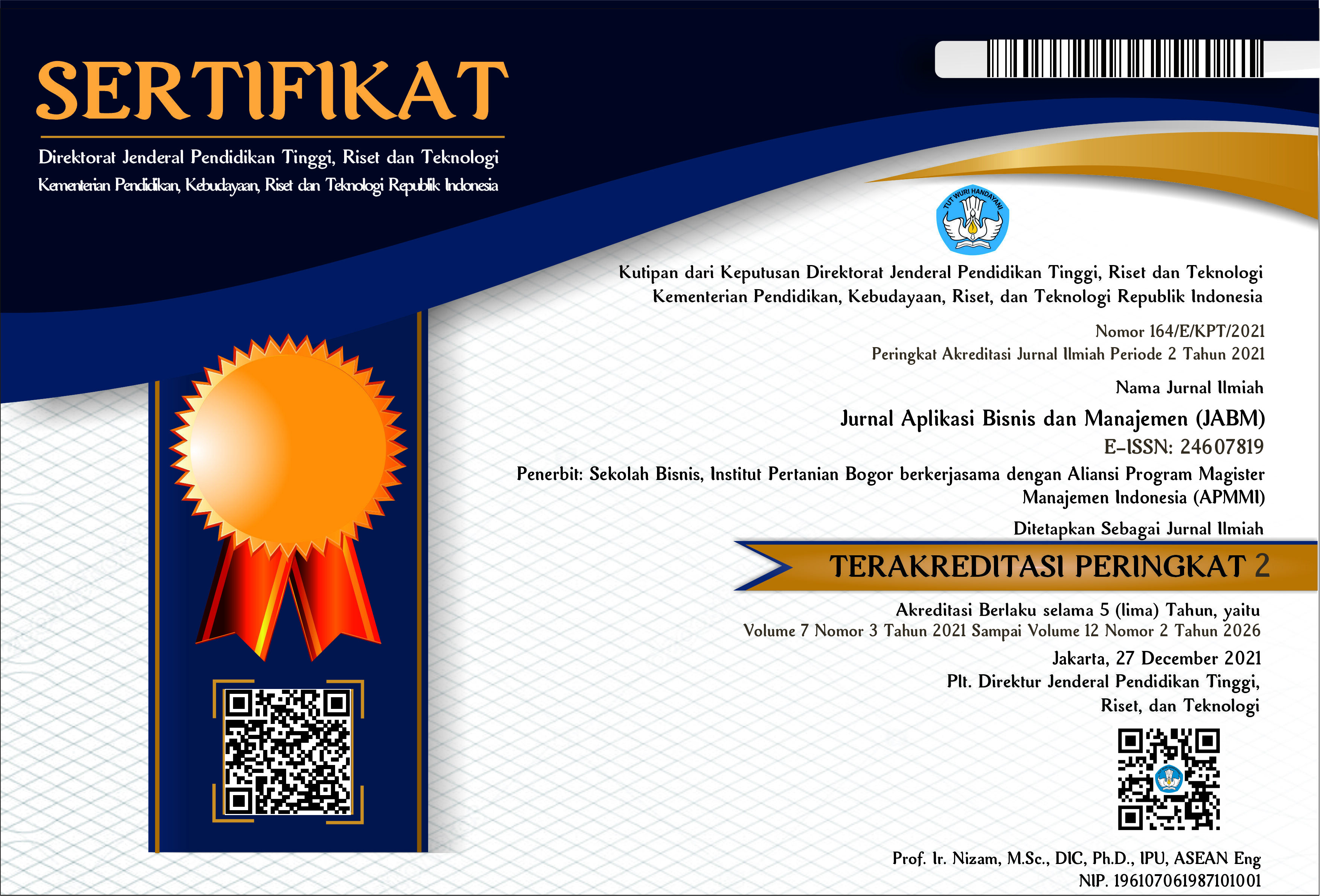Impact of Blended Learning Use On Agricultural Entrepreneurship Development
DOI:
https://doi.org/10.17358/jabm.10.3.988Abstract
Background: The combination of traditional in-person instruction with online learning components is known as blended learning. The higher education system benefits from blended learning. Mentoring blended learning can help undergraduate students improve their entrepreneurial skills. However, research on the specific benefits of blended learning on the growth of entrepreneurship remains limited in agriculture enterprises, particularly in regions such as Sri Lanka.
Purpose: The purpose of this study is to fill this research gap by investigating how undergraduate agricultural entrepreneurs use blended learning to develop their entrepreneurship.
Design/methodology/approach: This research was conducted at the University of Colombo Institute for Agrotechnology and Rural Sciences in Hambantota, Sri Lanka. The university is well-known for its innovative approach to blended learning. The target population consists of agricultural entrepreneurs seeking a bachelor's degree in Agro Technology. The entire population was responsible for data collection (204). The variables for the study were blended learning usage, entrepreneurship development, financial and non-financial aspects, innovativeness, achievement motivation, risk-taking ability, time management, and resourcefulness. Correlation and regression analysis were performed to test the hypothesis of the study.
Findings/Result: Blended learning has a strong positive associate with entrepreneurial development among undergraduate entrepreneurs. When analyzing the key influences on entrepreneurial development in this population via blended learning, time management emerges as the most important predictor. After time management, the ranking from highest to lowest is as follows, risk-taking ability, achievement motivation, resourcefulness, financial elements, non-financial aspects, and finally innovativeness.
Conclusion: undergraduate entrepreneurs grow their entrepreneurship through blended learning. Time management is the most important one among them all.
Originality/value (State of the art): Understanding these characteristics is critical to entrepreneurial development in Sri Lanka, particularly in the field of agriculture.
Keywords: agriculture, blended learning, entrepreneurship development, time management, undergraduate entrepreneurs






